
Data annotation is essential for training accurate AI models but presents challenges like scale, quality, and domain-specific complexity. This article highlights how specialized data annotation companies address these issues with scalable teams, quality assurance, and advanced tools, making it efficient to outsource data annotation services for faster and more reliable AI development.
In the world of artificial intelligence (AI) and machine learning (ML), data is everything. But raw data alone isn’t enough it's the annotated data that trains AI models to recognize patterns, make predictions, and generate intelligent outputs. However, the process of data annotation is often labor-intensive, error-prone, and resource-demanding. This is where data annotation company plays a crucial role.
By offering scalable, accurate, and efficient data annotation services, these companies help organizations overcome the many challenges associated with preparing datasets for AI applications. In this article, we’ll explore the common data annotation challenges and how AI data labeling service providers solve them, allowing businesses to accelerate their AI development.
Common Data Annotation Challenges
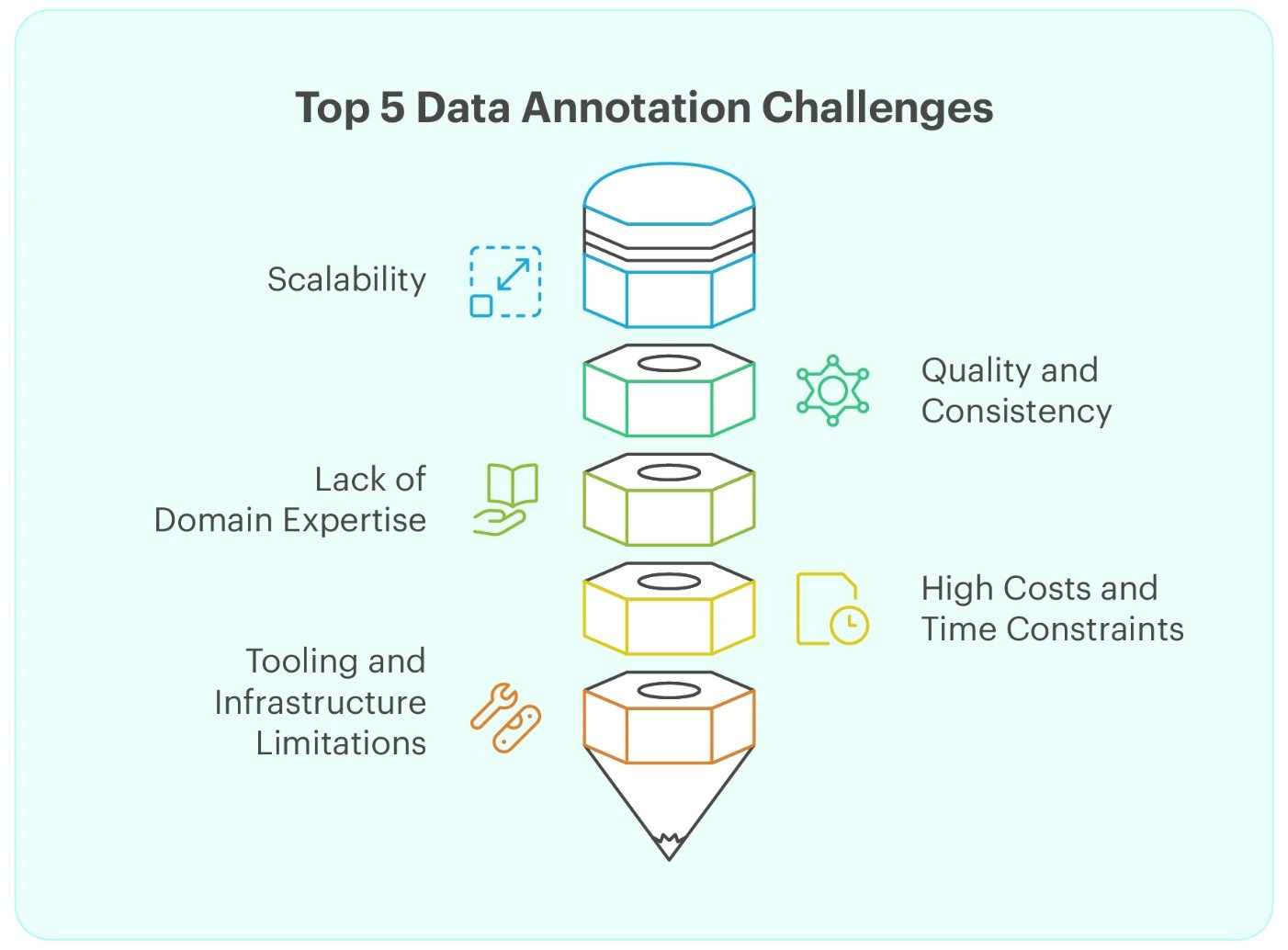
1. Scalability
As data volumes increase, so do the complexity of managing annotation workflows. Many in-house teams struggle to annotate thousands or even millions of data points efficiently while maintaining consistency. Scaling such operations internally often leads to bottlenecks.
2. Quality and Consistency
AI models are only as good as the data they’re trained on. Poorly labeled or inconsistent data can significantly reduce model accuracy. Without stringent quality checks, human annotators can introduce bias, errors, or inconsistencies in the data.
3. Lack of Domain Expertise
Certain industries, such as healthcare, legal, or autonomous driving, require expert knowledge for accurate annotation. For example, annotating medical images or legal documents demands specialized skills that most general in-house teams lack.
4. High Costs and Time Constraints
Building and maintaining a dedicated annotation team is costly. Recruiting, training, and managing annotators is a time-consuming effort that can drain internal resources, especially for startups or companies without a data-centric infrastructure.
5. Tooling and Infrastructure Limitations
Many organizations do not have access to advanced annotation platforms that offer automation, project management, or integration with ML pipelines. Manual processes are not only inefficient but also increase the risk of errors.
How AI Data Labeling Companies Solve These Challenges
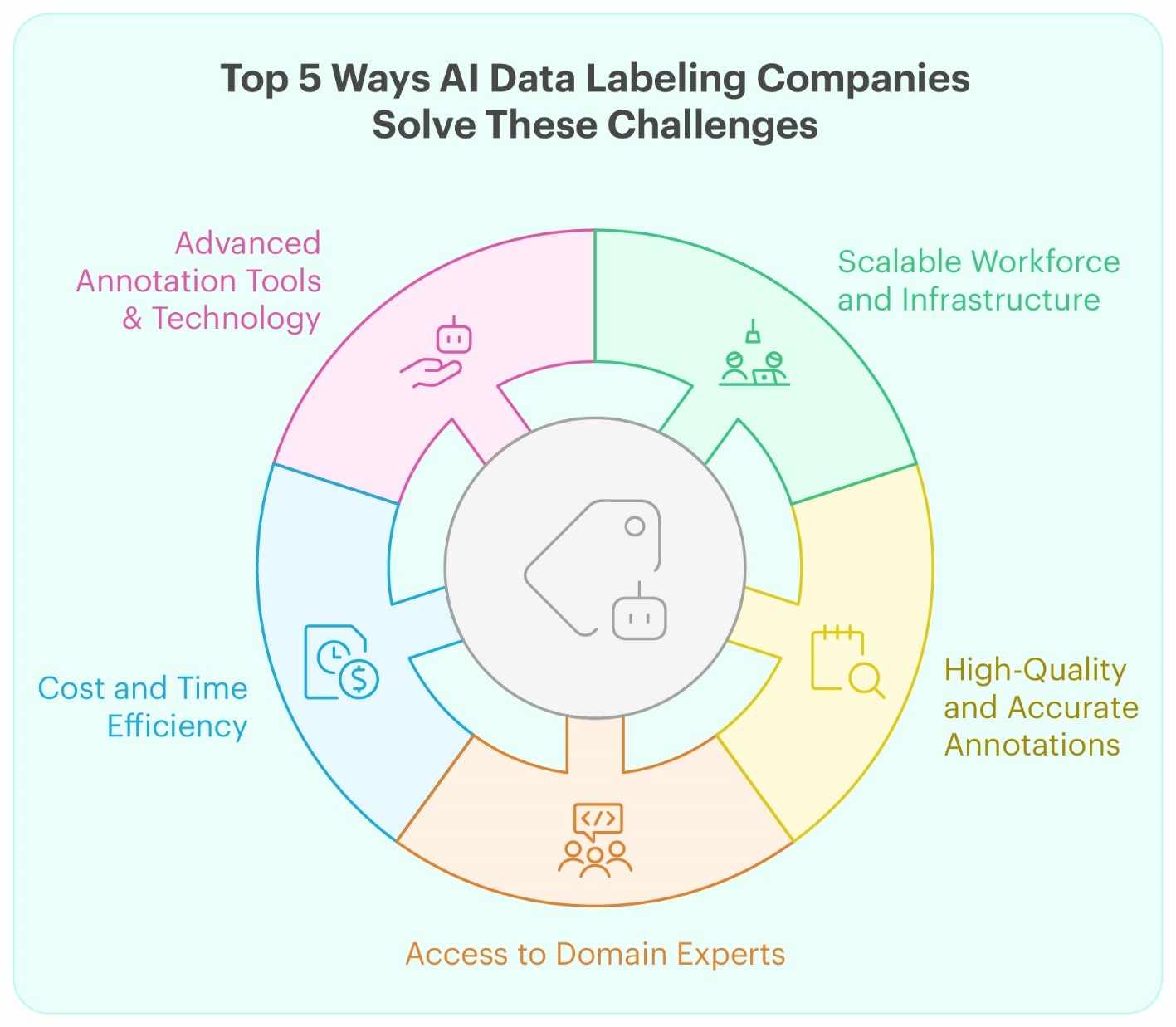
1. Scalable Workforce and Infrastructure
One of the biggest advantages of working with a data labeling service provider is access to a trained, on-demand workforce. These companies are equipped to handle annotation projects of all sizes, quickly scaling up or down based on project requirements. Whether you're labeling 10,000 images or 10 million, they can manage the workload efficiently.
2. High-Quality and Accurate Annotations
Top-tier data annotation companies implement rigorous quality assurance processes. This may include multi-layer review systems, consensus scoring, and AI-assisted annotation to reduce human errors. The result is highly accurate datasets that lead to better-performing AI models.
3. Access to Domain Experts
To meet industry-specific needs, many data annotation service providers employ or partner with domain specialists. Whether it's annotating radiology images, autonomous vehicle footage, or financial documents, these companies ensure that annotators understand the context and nuances of the data, which is essential for training specialized AI models.
4. Cost and Time Efficiency
Outsourcing data annotation significantly reduces overhead costs. Rather than investing in infrastructure, recruitment, and training, businesses can outsource data annotation services to experts who already have the systems and people in place. This allows internal teams to focus on core development while accelerating time-to-market for AI solutions.
5. Advanced Annotation Tools and Technology
Modern data annotation services offer access to powerful platforms that support complex annotation types (e.g., bounding boxes, semantic segmentation, sentiment analysis, named entity recognition). These platforms often include automation features, real-time monitoring, and seamless integration with ML pipelines, ensuring efficient and streamlined workflows.
Real‑World Impact: Food Waste Assessment in Switzerland (Case Study)
A Switzerland-based food waste assessment company partnered with a data annotation service provider, HabileData, to label thousands of food waste images for training its AI model.
Challenges:
· Complex image annotation with mixed food items.Need for region-specific food knowledge.
· Requirement for high accuracy and consistency.
Solution Provided:
· Customized annotation workflow using the client’s platform.
· Domain-specific labeling using a curated food item repository.
· Continuous client collaboration for ambiguous cases.
· Multi-layer quality control with revalidation of mismatches.
· Automated uploads and detailed analytics reporting.
Business Impact:
· Increased annotation accuracy
· Improved ML model performance
· Reliable food waste analysis insights
· Streamlined operations and enhanced client credibility
Conclusion
Data annotation is a foundational step in building successful AI and ML models but it's also one of the most complex and resource-heavy tasks. Data annotation companies bring the expertise, scalability, and technology needed to overcome these challenges. By choosing to outsource data annotation services, organizations can focus on innovation while ensuring their AI models are trained on high-quality, accurately labeled data.
As AI continues to evolve, the role of trusted data annotation service providers will only grow more essential. Choosing the right partner can be the difference between a struggling AI initiative and a successful, scalable solution.
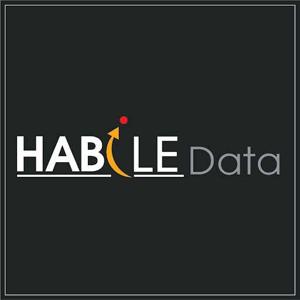

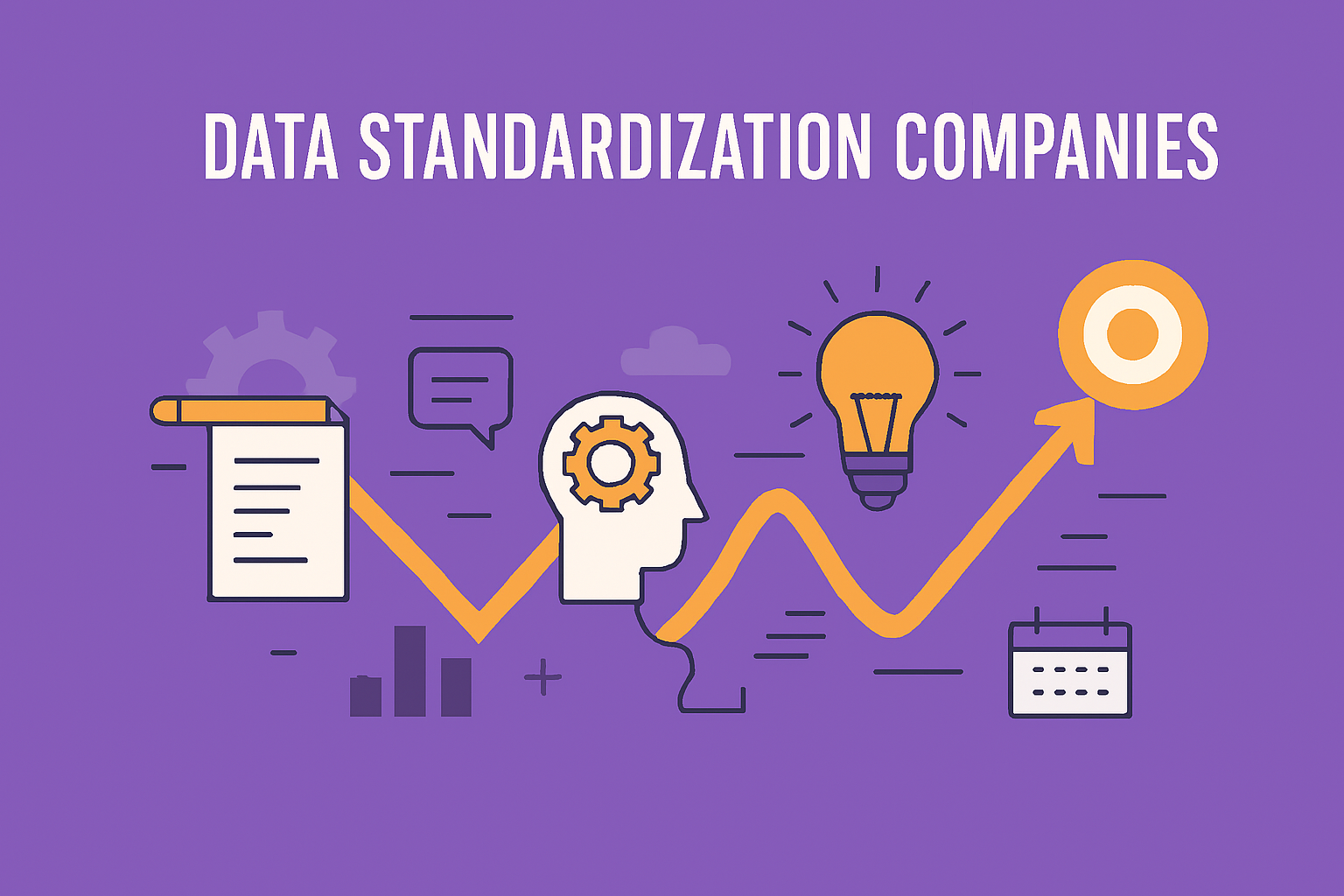
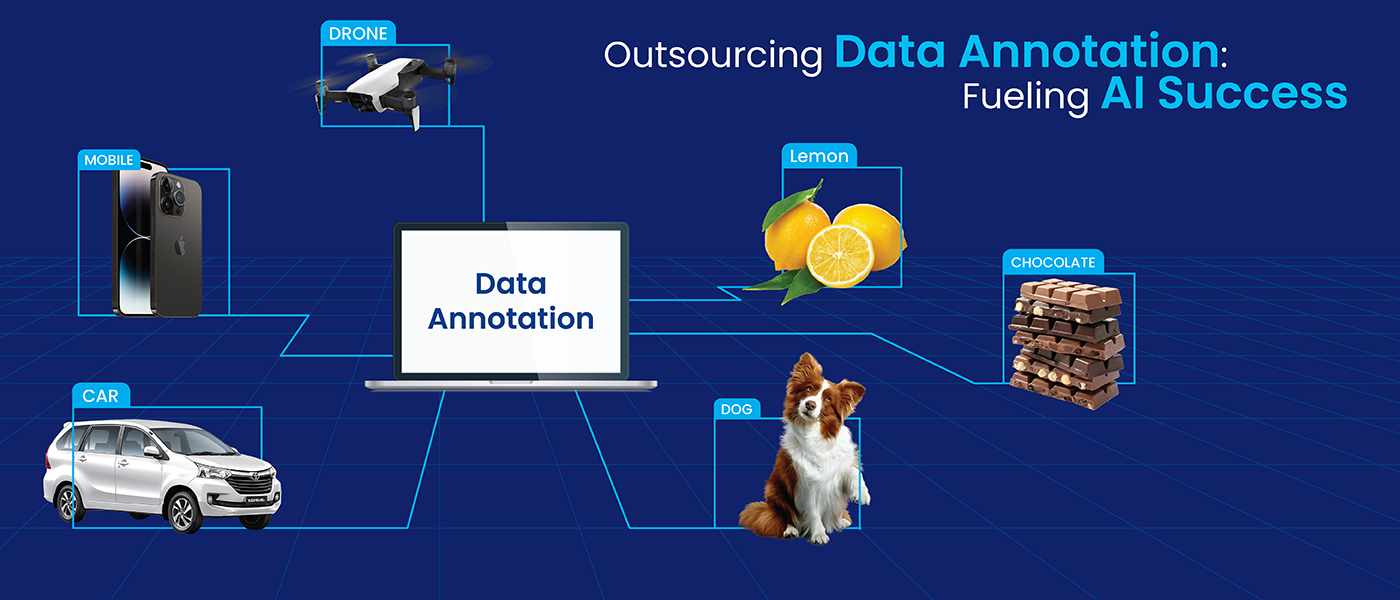
Write a comment ...